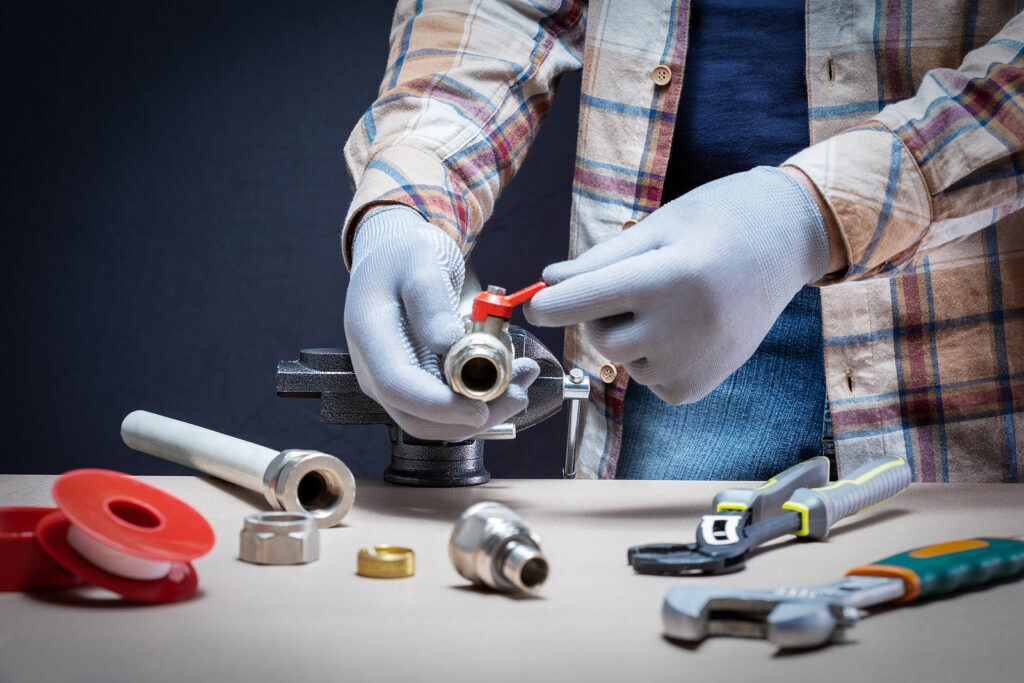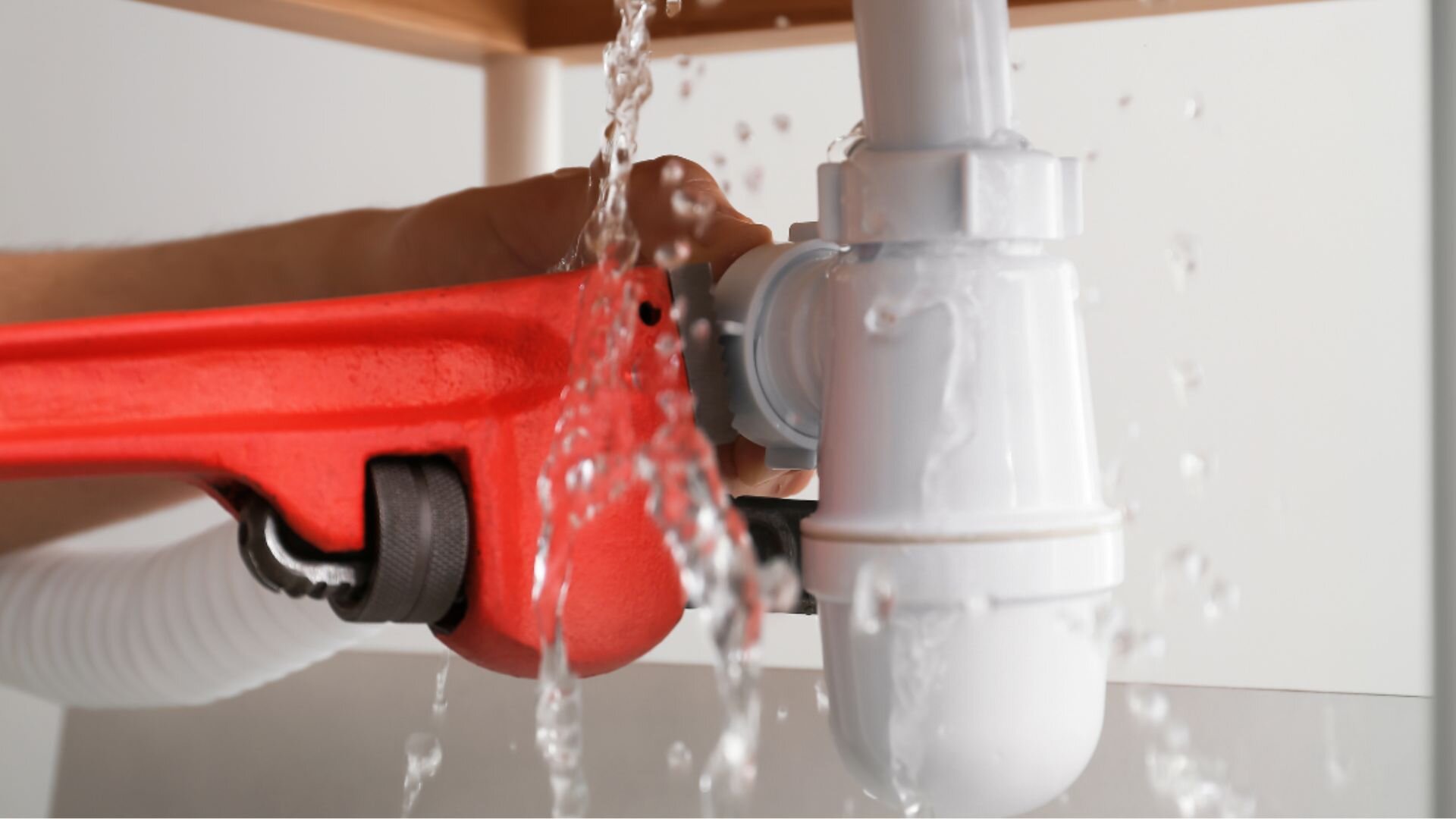Quick Fixes for Plumbing Emergencies: What to Do Until Help Arrives
Quick Fixes for Plumbing Emergencies: What to Do Until Help Arrives
Blog Article
They are making a few good observations relating to What to Do While Waiting for an Emergency Plumber in general in this great article following next.

Plumbing emergencies can strike at any time, causing stress and possible damages to your home. Whether it's a ruptured pipe, a blocked drain, or a leaky tap, recognizing just how to handle the circumstance up until a professional plumbing professional shows up can save you from further difficulties. This write-up supplies vital emergency plumbing pointers to aid you reduce damage and regain control throughout a plumbing crisis.
Switch off the Water
The very first step in any type of pipes emergency is to shut off the water supply. For localized concerns, such as a dripping tap or bathroom, shut off the valve near the fixture. When it comes to a significant leak or burst pipe, situate your home's major water shut-off valve and transform it off quickly. Understanding the location of these shutoffs ahead of time can conserve important time during an emergency situation.
Shut down Your Water Heater
In specific emergencies, such as a ruptured pipeline, it's a good idea to shut off your hot water heater. This stops overheating or damages to the unit when water quits streaming. Turn off the power supply to the hot water heater (electric or gas) and allow it cool off to avoid possible hazards.
Momentarily Quit a Burst Pipeline
A ruptured pipe can cause substantial water damage in minutes. To minimize the concern:
Call a specialist plumber immediately to attend to the problem completely.
Have an Emergency Situation Plumbing Package
Prepare a fundamental plumbing emergency package to handle small problems properly. Your package needs to include:
Having these tools on hand can make a significant difference in your ability to manage emergency situations.
Unclog Drains Safely.
A clogged up drain can be an irritating and messy issue. Below's exactly how to tackle it:.
If these approaches don't work, stay clear of making use of too much pressure, as it may aggravate the obstruction.
Take Care Of Overflowing Toilets.
An overruning bathroom can trigger prompt disorder. Here's what you must do:.
Address Little Leaks with Short-term Fixes.
Little leaks can swiftly end up being substantial issues if left unattended. Use these short-lived repairs up until professional aid gets here:.
While these solutions aren't long-term, they can help decrease water loss and damage.
Handle Frozen Water Lines Thoroughly.
In cooler environments, frozen pipelines are a typical emergency. If you presume a frozen pipeline:.
Know When to Call a Professional.
While quick fixes can help briefly, certain plumbing concerns need instant expert interest. Call a plumbing technician if:.
Without delay speaking to an expert makes sure the issue is dealt with appropriately and stops further difficulties.
Stop Further Damages.
Taking fast action to decrease damage can save you money and time in the long run. Right here's how:.
Final thought.
Pipes emergencies can be overwhelming, yet with the right understanding and devices, you can take care of the situation successfully till help arrives. By shutting off the supply of water, dealing with little leakages, and utilizing momentary solutions, you can decrease damages and maintain your home safe. Bear in mind, these pointers are short-lived solutions; constantly get in touch with a qualified plumbing professional to handle the root cause of the problem. Prep work and fast reasoning are your ideal allies in any kind of pipes emergency situation.
8 Helpful Tips for Managing Plumbing Emergencies at Home
If your plumbing system hasn’t failed once, wait for it because almost everyone has a story to tell. Sometimes, it could be simple emergencies such as a leaking pipe, a blocked cistern, or even a big burst pipe. In situations like this, you need to have some handy tips to save you some money and from possible damages.
Take care of minor issues early.
Sometimes, you could have avoided an emergency by taking proactive measures while it was still early. Some major plumbing emergencies can be a result of an ignored minor issue. We recommend that you have items like plumbing tapes and other related items. A plumbing tape can allow you to manage minor leaks before the plumber arrives.
Cut off the water supply.
This tip is essential in almost any type of leakage problem. For problems like minor leakages in the toilet or kitchen, turn off the supply that takes water to the affected pipes. If the leakage is a major pipe, you must shut off the supply valve to the entire building. This will help you avoid flooding your home and neighbors if you share a flat.
Know your plumbing system
Folks typically move into a new apartment without understanding the water supply around the building. This can prove disastrous if a water emergency arises and the plumber is far away. The previous tip will prove useless if you don’t practice this one. More importantly, know where your water shut-off valve is located – you’ll need that knowledge to prevent potential home floods.
Have some common handy tools
There are lots of plumbing emergencies that you can handle without hiring a plumber. That’s why you must keep some tools available always. Some tools that you can use to fix simple plumbing emergencies easily include plumbing tapes, screwdrivers, thread seal tapes, plungers, pliers, tape measures, and rubber gloves.
Insulate your pipes from cold
You’ll save yourself from many plumbing expenses if you protect your water pipes from the cold. This is because of the harmful effects that cold weather can have on your pipes. During winter, your pipes can burst from being overly expected to freezing temperatures. So, make sure insulators are there to keep the pipes working correctly.
Avoid practices that will clog your toilet.
Many people indulge in practices that can damage the plumbing system of the entire building. One of these is when they use their toilet to dispose-off garbage. They flush all kinds of things, such as paper towels, bandages, hairs, female sanitary products, etc., down the toilet. This will block your toilet in the long run, incurring unnecessary expenditures. Dump such waste in the trash instead.
Check your dials regularly.
Sometimes, there could be leakages in your home without noticing them in time. So, constantly monitor your water meter dial. If the dial is reading when there is nobody using water, this is an indicator that there is leaking. Check for leaks immediately. Call a plumber as soon as possible if you can’t find any.
https://www.constructionplacements.com/8-helpful-tips-for-managing-plumbing-emergencies-at-home/

As a devoted person who reads on Expert Tips for Emergency Plumbing Repairs, I thought sharing that post was essential. Be sure to take the opportunity to share this post if you appreciated it. We take joy in reading our article about What to Do While Waiting for an Emergency Plumber.
Call Today Report this page